You can contact LEARNZ, part of CORE Education, at:
Postal Address:
PO Box 13 678,
Christchurch 8141,
New Zealand
Learn more about our field trip experts from Discovery Marine Limited (DML) and their exciting careers in hydrography.
What is your role and what do you like about it?
My daily life as a hydrographic surveyor revolves around the mapping and measurement of underwater features to help make shipping navigation a lot safer. Each day begins with planning missions, analysing data, and coordinating with the crew whilst utilising cutting edge technology like MBES and GPS. My work takes me all over New Zealand and the Pacific from inland fast-flowing rivers to serene coastal waters, and deep offshore environments out of sight of land. The variety of environments, weather, and sea conditions means no two jobs are ever the same.
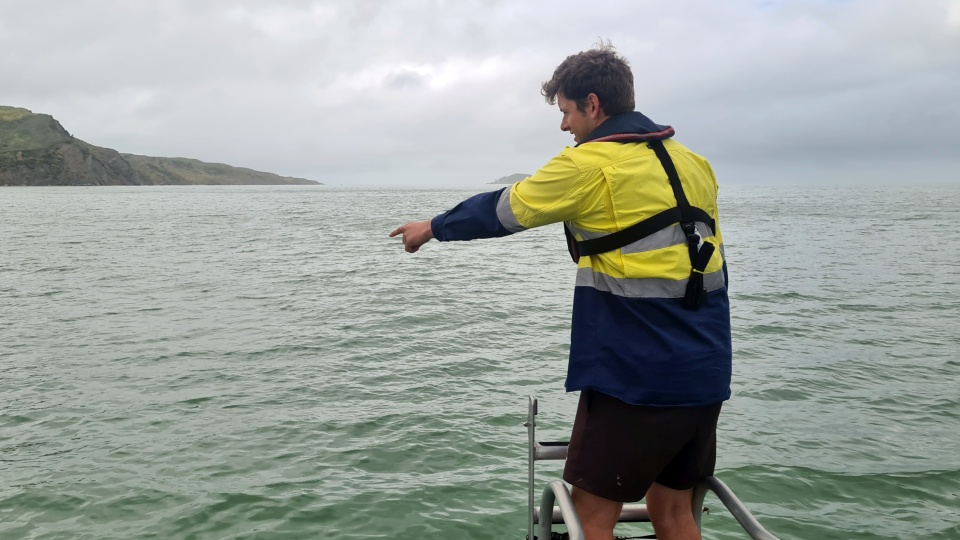
What inspired you to become a hydrographer and what advice would you give to someone interested in this career?
I have always been interested in the ocean and grew up fishing and diving on the East Coast of New Zealand. The idea of spending time on the ocean and exploring the underwater world has always been a passion of mine. At school I was interested in technology and science and sought out a career where I could combine my desire to work outdoors with the practical application of science and problem-solving skills. For someone interested in pursuing a career as a hydrographic surveyor, I would advise them to develop a strong foundation of maths, physics, computers, and technology. Any time you can spend on a boat helps give hands-on experience and an insight into what your day-to-day might look like.
What are the thrills and challenges of hydrography?
I really enjoy travelling to diverse and remote locations around New Zealand and the Pacific. From navigating the rugged coastline of Stewart Island on a big ship to the sandy beaches in Northland driving small remote-control boats, every project presents different and exciting opportunities. A fun fact I like is that around 80% of the ocean is still unmapped! One of the biggest thrills for me is to find old shipwrecks and uncharted features on the seafloor. Seeing the images pop up on the MBES really excites me and reminds me of the mysteries that lie below the surface. Working on boats comes with unique challenges. The ocean is a dynamic and sometimes unpredictable environment. This means we must carefully plan around the weather and tides, working together as a crew to look after each other and keep everyone safe. This poses some interesting challenges like what size boat to use, and the time of year chosen to conduct the survey.
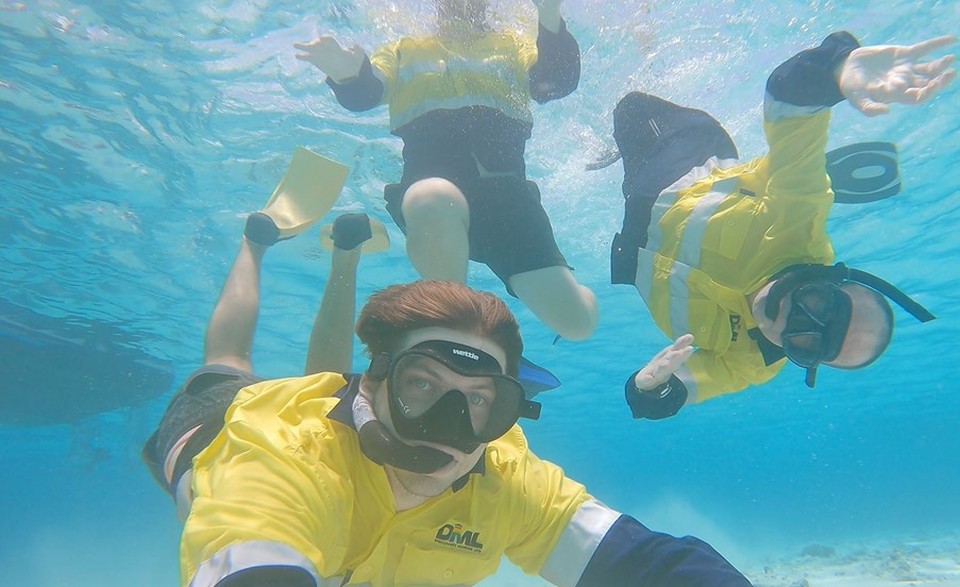
Tell us about a memorable career highlight
An interesting project I worked on recently was a survey in Micronesia on the other side of the Pacific. When the project was complete, we had a few extra days to explore the island with our charter boat. We visited ancient ruins from a lost civilisation and dived with manta rays in tropical waters!
What is your role and what do you like about it?
A lot of the work we do uses a multi-beam echo sounder to map the depth of the seabed. My role is to control the sonar while we are gathering data, check the quality of the data we’re collecting, and work with the skipper to make sure we are navigating around any rocks or hazards. Other equipment we often use are side scan sonars, laser scanners, current measuring devices, and ROVs (remotely operated vehicles). Once we have collected the data, we spend time in the office processing it and reporting on what we find. My favourite part of the job is exploring new places and finding meaningful ways to display the data we’ve collected for whoever needs to use it.
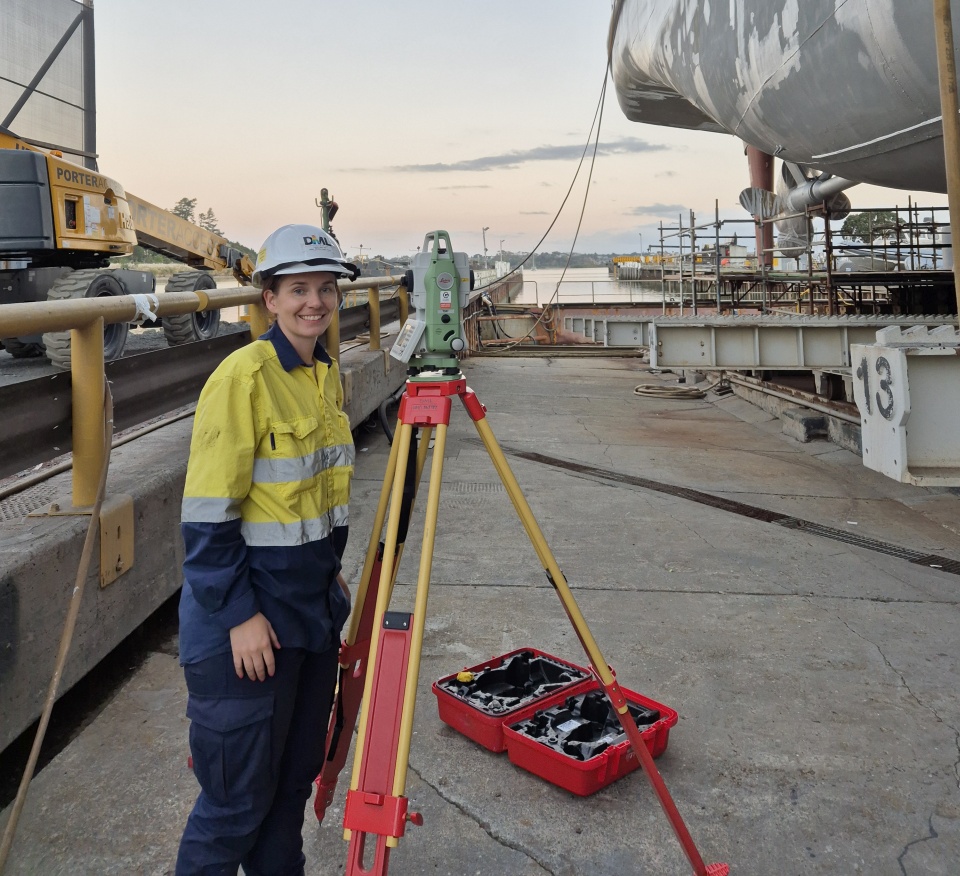
What inspired you to become a hydrographer and what advice would you give to someone interested in this career?
I studied a Bachelor of Surveying at the University of Otago because it aligned with my interests at school (maths and geography) and provided a career where I wouldn’t be sitting in the office every day. The opportunity for travelling and spending time on the water is what drew me to hydrography. My advice for anyone who wants to get into hydrography is to have a chat with a hydrographic surveyor to get the full picture on what this career entails. If you can approach a survey company to take you out on the boat for the day, even better! People who excel at hydrographic surveying are good problem solvers, well-rounded, are open to learning new technologies as they come along, and are good at working within a team.
What are the thrills and challenges of hydrography?
I like travelling to interesting parts of the country that are hard to access or that you might not normally visit. I also enjoy uncovering parts of the seafloor that have never been seen before, revealing the secrets of the deep!
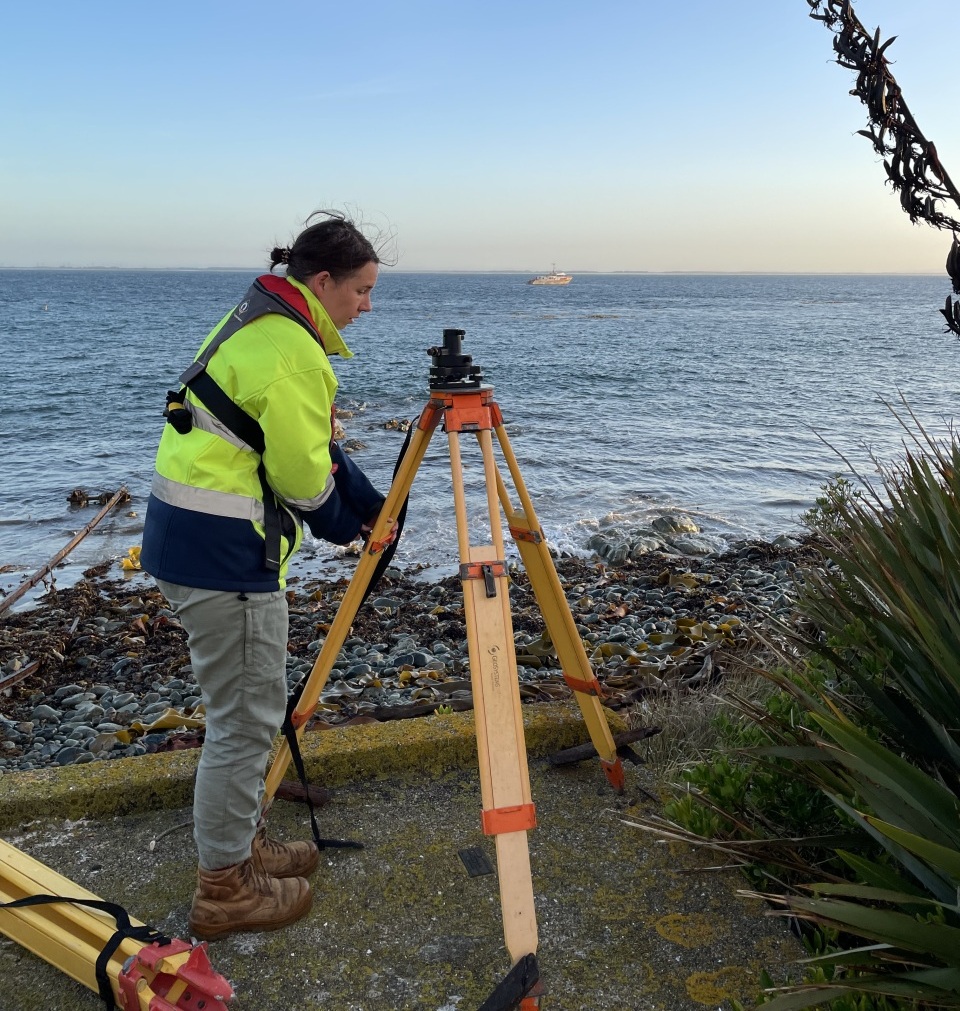
Tell us about a memorable career highlight
I was part of a team conducting a nautical charting survey in Papua New Guinea, which took us to some pristine tropical islands. It was exciting to discover several uncharted shipwrecks that were from World War II, and to piece together the history of what battles they might have been sunk in.
What is your role and what do you like about it?
My role is to oversee the survey programmes that DML conducts at commercial ports throughout New Zealand. We conduct regular surveys using multiple vessels to ensure cargo and other vessels can operate safely. I really enjoy travelling throughout New Zealand and providing support and critical information to the ports. It is very satisfying to play a part in ensuring that New Zealand’s shipping can continue safely.
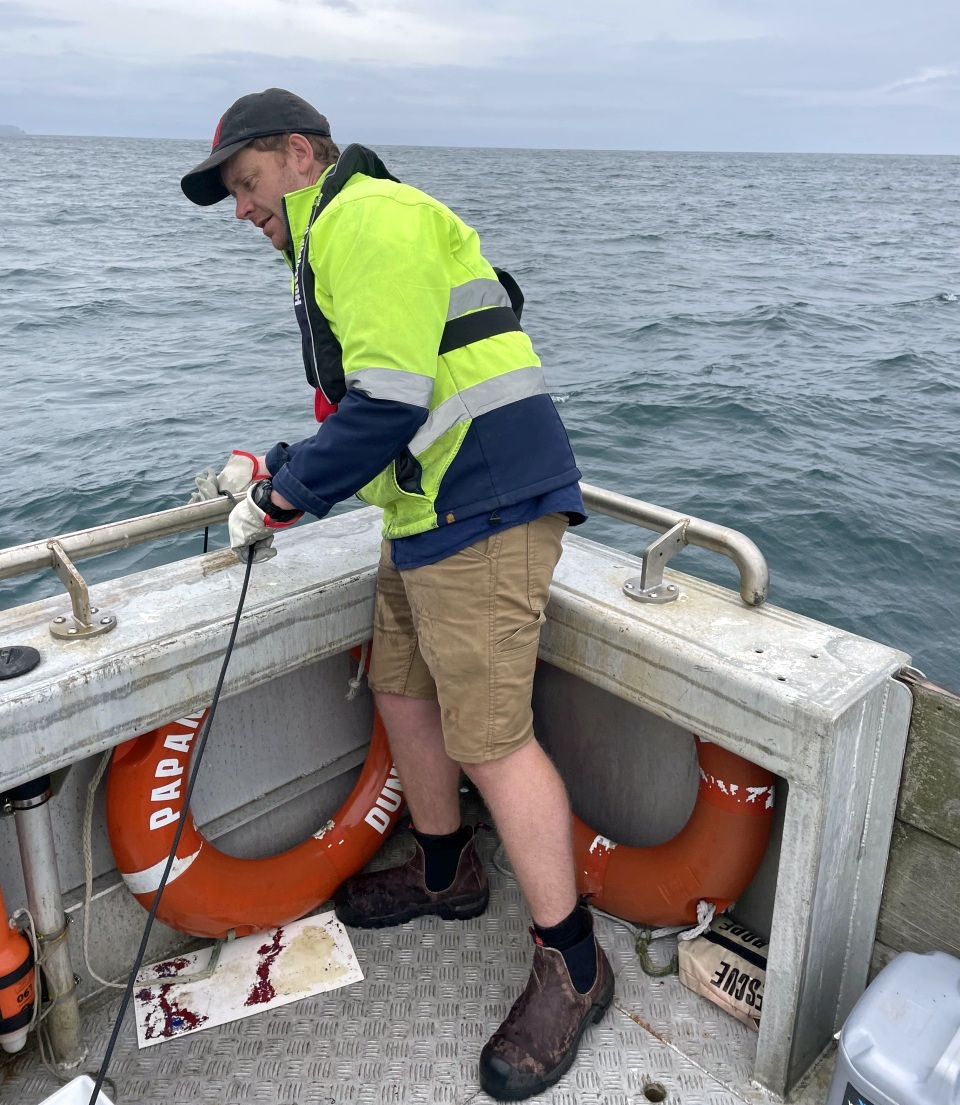
What inspired you to become a hydrographer and what advice would you give to someone interested in this career?
I have always enjoyed travelling and exploring new places. So little of the world’s oceans are mapped so it is awesome to genuinely unearth and chart areas for the first time. Hydrography is a global skill so there are opportunities to work all over the world. My advice would be to get in touch with any survey companies operating near you to see if they will take you out on the boat for a day. I think it is super important to see what being offshore on a survey vessel is like.
What are the thrills and challenges of hydrography?
The thrills are finding wrecks and other seabed features that no one has ever seen before. There is a whole world of reefs and mud volcanoes out there that no one knows about. The weather can be a real challenge. Ideally we don’t want to be out in storms but we do occasionally get caught out. It can make you really appreciate how angry the sea can get and how nice it is to be back on land.
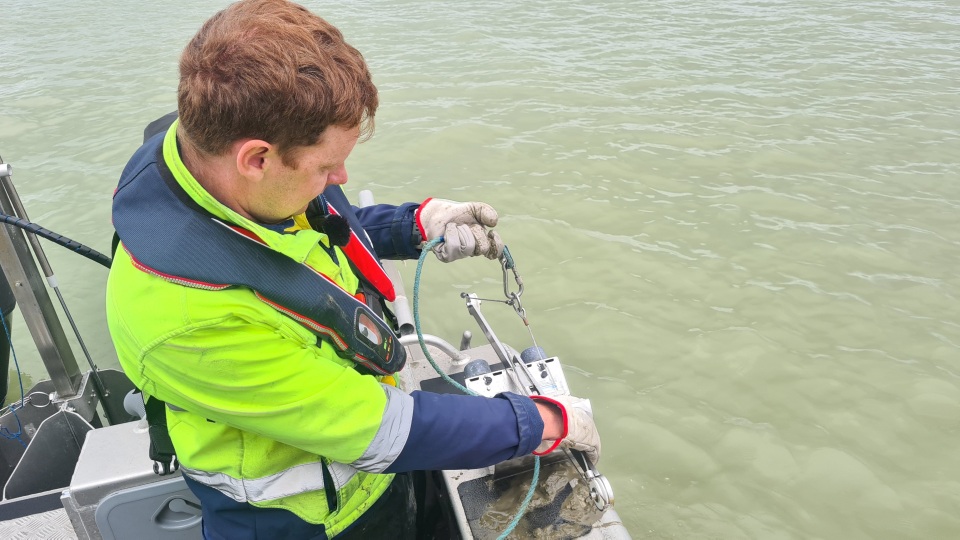
Tell us about a memorable career highlight
My first job out of university was participating in the search for missing airplane MH370 in the Indian Ocean. It was quite surreal being involved in a project that was in the global media’s spotlight. We were based in Perth, Australia and had to sail a week out to sea before we even began searching. The rough seas and remoteness of the job was something I had not experienced before and have not since.
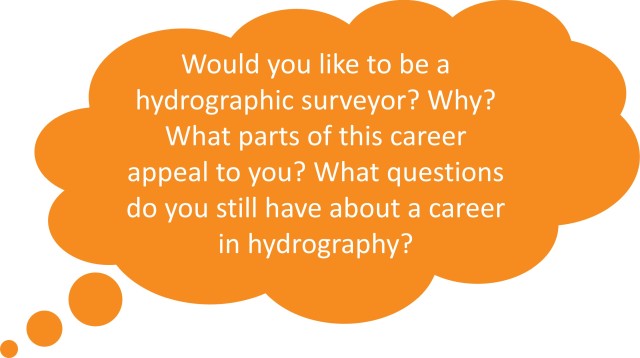
Try the Career spotlight quiz.